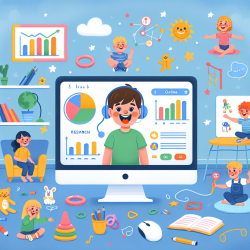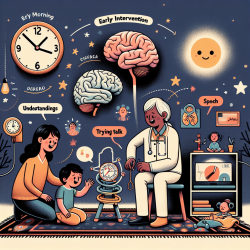Introduction
In today's digital age, social media has become an integral part of our lives, influencing various aspects of our daily routines. While it offers numerous benefits, such as connectivity and information sharing, it also poses significant risks, particularly when it leads to addiction. The study titled "Investigation of the Effect of Social Media Addiction on Adults with Depression" provides valuable insights into how social media addiction can exacerbate depression in adults. This blog aims to explore these findings and offer guidance for practitioners working with children and adolescents, emphasizing the importance of data-driven decisions to improve therapeutic outcomes.
Understanding the Research
The research, conducted with a sample of 419 adults in Turkey, aimed to investigate the relationship between social media addiction and depression. The study utilized the Social Media Dependence Scale (SMDS) and the Beck Depression Inventory to assess participants' addiction levels and depression symptoms. Key findings revealed significant correlations between social media addiction and depression, with variables such as age, income, and the number of children influencing these outcomes.
Key Findings and Implications
- Age and Social Media Addiction: Younger adults (ages 18-25) exhibited higher levels of social media addiction and depression compared to older age groups. This suggests that practitioners should focus on early intervention strategies for younger populations.
- Impact of Social Media Usage Duration: The study found that increased time spent on social media was positively correlated with higher addiction and depression levels. Practitioners should encourage balanced media usage and promote offline activities.
- Socio-Demographic Variables: Factors such as marital status and income level were linked to variations in social media addiction and depression. Understanding these socio-demographic influences can help tailor interventions to individual needs.
Practical Applications for Practitioners
Practitioners working with children and adolescents can leverage these findings to enhance their therapeutic approaches:
- Early Identification: Screen for social media addiction symptoms during initial assessments to identify at-risk individuals early.
- Education and Awareness: Educate families about the potential risks of excessive social media use and promote healthy digital habits.
- Personalized Interventions: Develop personalized intervention plans that consider the individual's socio-demographic background and specific needs.
- Promote Offline Engagement: Encourage activities that foster face-to-face interactions and reduce reliance on digital platforms.
Encouraging Further Research
While this study provides valuable insights, further research is needed to explore the long-term effects of social media addiction on mental health. Practitioners are encouraged to contribute to this growing field by conducting studies that examine the impact of digital media on various age groups and cultural contexts.
To read the original research paper, please follow this link: Investigation of the Effect of Social Media Addiction on Adults with Depression.










